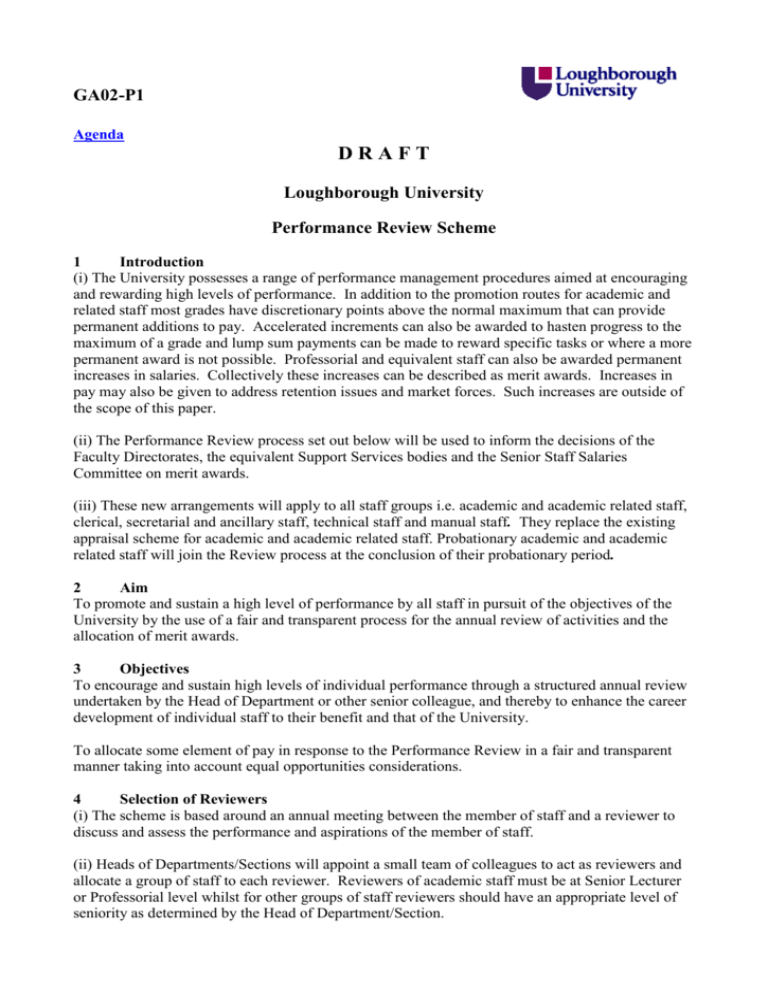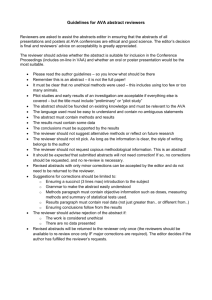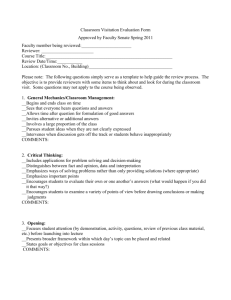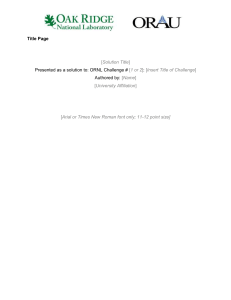ga02-p1 - Loughborough University
advertisement

GA02-P1 Agenda DRAFT Loughborough University Performance Review Scheme 1 Introduction (i) The University possesses a range of performance management procedures aimed at encouraging and rewarding high levels of performance. In addition to the promotion routes for academic and related staff most grades have discretionary points above the normal maximum that can provide permanent additions to pay. Accelerated increments can also be awarded to hasten progress to the maximum of a grade and lump sum payments can be made to reward specific tasks or where a more permanent award is not possible. Professorial and equivalent staff can also be awarded permanent increases in salaries. Collectively these increases can be described as merit awards. Increases in pay may also be given to address retention issues and market forces. Such increases are outside of the scope of this paper. (ii) The Performance Review process set out below will be used to inform the decisions of the Faculty Directorates, the equivalent Support Services bodies and the Senior Staff Salaries Committee on merit awards. (iii) These new arrangements will apply to all staff groups i.e. academic and academic related staff, clerical, secretarial and ancillary staff, technical staff and manual staff. They replace the existing appraisal scheme for academic and academic related staff. Probationary academic and academic related staff will join the Review process at the conclusion of their probationary period. 2 Aim To promote and sustain a high level of performance by all staff in pursuit of the objectives of the University by the use of a fair and transparent process for the annual review of activities and the allocation of merit awards. 3 Objectives To encourage and sustain high levels of individual performance through a structured annual review undertaken by the Head of Department or other senior colleague, and thereby to enhance the career development of individual staff to their benefit and that of the University. To allocate some element of pay in response to the Performance Review in a fair and transparent manner taking into account equal opportunities considerations. 4 Selection of Reviewers (i) The scheme is based around an annual meeting between the member of staff and a reviewer to discuss and assess the performance and aspirations of the member of staff. (ii) Heads of Departments/Sections will appoint a small team of colleagues to act as reviewers and allocate a group of staff to each reviewer. Reviewers of academic staff must be at Senior Lecturer or Professorial level whilst for other groups of staff reviewers should have an appropriate level of seniority as determined by the Head of Department/Section. (iii) The Head of Department/Section will review the professorial and equivalent staff in the department together with any other staff acting as reviewers. (iv) Head of Departments/Sections will be reviewed by the Dean or other relevant executive manager. (v) The Vice-Chancellor will review the Deans and other executive managers and in turn will be reviewed by the Chair of Council. 5 Operating Process (i) Review meetings will be held from April to June to inform the decisions on rewards to be paid in August. (ii) Before the annual round of Performance Reviews the Head of Department will meet with the team of reviewers to discuss the process, review the departmental objectives and receive information on the performance standards for the department or disciplines within the department. (iii) Reviewers will convene meetings with the staff they are to review. Prior to the meeting the member of staff will prepare a self-assessment of their performance over the last year, particularly with regard to the targets set at the previous review. This statement and a job description will be given to the reviewer in good time before the review meeting. Where a reviewer is not fully aware of the work of the member being assessed they should obtain relevant information before the review meeting to enable a proper judgement of performance to be made. (iv) At the review meeting the performance of the member of staff in relevant activities (see below) will be assessed against the targets agreed between the individual and reviewer at the last review, in the context of Departmental objectives, and against appropriate measures agreed by the Faculty. Provisional performance ratings for the activities will be assigned. At the same meeting, targets for the coming year will be discussed and amended by agreement and any developmental support needed for their achievement will be identified. (v) When all of the Performance Reviews have been concluded the Head of Department will meet with the reviewers to discuss and finalise the ratings and agree the developmental programme for the coming year. Individuals who are dissatisfied with their provisional ratings or targets for the coming year may make a written submission that will be considered at this meeting. (Reviewers who are dissatisfied with a rating given by the Head of Department should make a submission to the Dean. The Dean will discuss the issue with the Head of Department and decide on the rating.) (vi) Heads of Departments should interview staff whose performance in any relevant activity is assessed as unacceptably low and consult with Personnel Services on an appropriate course of action. 6 Performance measures in relevant activities (i) The relevant activities that are to be assessed will vary from one staff group to another and between individuals within those groups. Performance in each activity shall be rated as either Outstanding, Good, Satisfactory or Unsatisfactory. (ii) Reviewers must take care to examine all data carefully so that personal circumstances, for example working hours or career breaks, are fully allowed for and no bias used when making assessments. (iii) For academic staff three groups of activities will be assessed - research, teaching and administrative/other duties. The reviewer will assign a provisional rating for each activity focussing as appropriate on: performance in the leadership and development of teams involvement in innovation and knowledge transfer volume and quality of work the acceptance and discharge of responsibilities, and interpersonal skills/relationships with others. Research will be assessed in consideration of personal research plans and the achievement against targets previously agreed. Data from the academic staff activity system and existing departmental records will be used to ascertain the volume of work in research and teaching which will be combined with quality measures to show individual performance compared with appropriate departmental/faculty benchmarks. (iv) For other staff the reviewer and the individual will look at details of the job description and group the activities into no more than three headings. Performance in these areas will be reviewed under the headings of quality of work, the acceptance and discharge of responsibilities and interpersonal skills/relationships with others. Where appropriate this last category should include an assessment of performance in the leadership and development of teams. (The Human Resources Committee may approve specific performance templates to be used for classes of jobs where explicit and quantifiable performance standards can be established.) 7 Rewards (i) The Performance Review process will only be fully functional in the second year when progress towards the targets set in the previous year can be assessed. (ii) From the second year onwards the outcome of Performance Reviews will be included in any departmental proposals or self-submissions for promotion, accelerated/discretionary increments and lump sum payments. (iii) Statistical information on all the ratings in each Department/Section (distribution and average) will be made available to the Review committees. Details of the ratings awarded to all staff in their area will be available to the relevant Dean/Executive Manager for information. (iv) The Senior Staff Salaries Committee will include a consideration of performance review markings when conducting its annual review. 8 Paperwork Paperwork will consist of: 9 A self assessment of performance during the year under review - to include details of the targets set at the beginning of the year and progress towards them A copy of the current job description For academic staff - Personal Research Plans (PRPs), information drawn from the Academic Staff Activity System and from departmental records A Reviewer report form which will contain details of the proposed rating and a statement of targets for the year ahead Any statement that the individual wishes to accompany the Reviewer's report A report from the Head of Department/Section confirming the final rating. Confidentiality Paperwork will be confidential to the member of staff being reviewed, the reviewer and the Head of Department. The proposed ratings will be confidential to the member of staff being reviewed, the reviewer, the Head of Department and other members of the relevant Review Committee. 10 Training All reviewers must be trained (initially and then periodically). Provisional Implementation Timetable 4 March 2002 EMG approves details of PRS 4 March 2002 Details of PRS sent to trades unions for negotiation. During March 2002 Negotiations with the trades unions March - April 2002 a) Academic Departments populate ASAS teaching and admin. elements or produce alternative arrangements b) Departments/Sections begin to identify Reviewers 3 April 2002 Deadline for agreement with trades unions 8 April 2002 Special HRC meeting to accept terms of agreements on PRS for onward recommendation to Council 19 April 2002 Council ratifies PRS 20 April 2002 onwards Reviewer training begins May 2002 First round of reviews begin May 2002 Reward Reviews of academic staff use data from ASAS etc 30 September2002 First round of reviews completed April- May 2003 Second round of reviews August 2003 First payments based on full PRS September 2003 Review of the operation of the PRS 4 March 2002. Agenda Minutes ga02-m1






